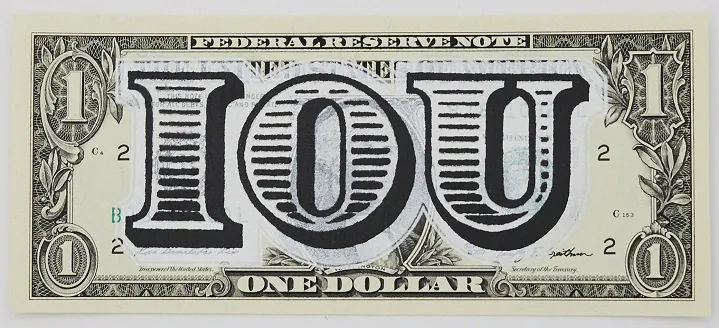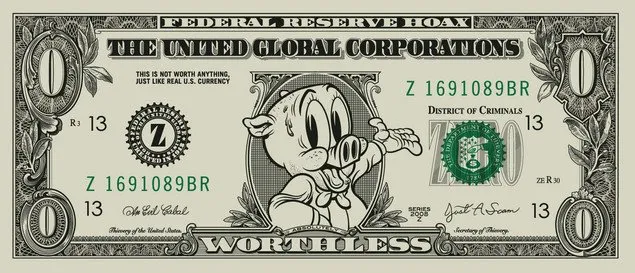
I see a lot more chatter in the mainstream these days about how the paper market (derivatives) can easily be manipulated to push the underlying collateral market in one direction or the other. These manipulations are well documented and have existed for decades. The theory is most commonly applied to assets like gold and silver, especially by those who are bullish on precious metals and like to have an excuse for why the market has been seemingly permanently suppressed.
I do not necessarily subscribe to the idea that the commodity market can be manipulated by derivatives in this way. Yes, of course derivatives can TEMPORARILY manipulate the market... that much is quite obvious. But the ability to PERMANENTLY suppress gold and silver over decades? I'll admit that I'm kind of a noob when it comes to the futures market (because I've never participated) but I just feel like that's not really a thing. There are a few accounts on Hive I know would disagree with me so maybe we'll see some good commentary below.
For example @drutter seems to know quite a bit about this topic.
At this juncture it only makes sense to me that derivative manipulations can only go on so long before the market gets back to equilibrium (and likely even swings into the opposite direction). That's just the natural cycle of things hard at work. I think a lot of people out there (especially libertarians and crypto enthusiast) are very much overestimating the value of precious metals for various reasons.

Fiat currency has value
This is something that most crypto people and precious-metalheads refuse to admit. These people use fiat every single day and then turn around and try to act like it has zero value. Nice try, gentlemen. That's simply not based in reality. Fiat has so much value in fact that it is the measuring stick against which all other value is measured. Unit-of-Account matters.
Precious metals are not gaining value.
This is especially true now that crypto exists. Using PMs as a store of value is becoming more antiquated and ridiculous for every year that passes. In fact, simply the concept of "storing value" heavily implies that the asset was NEVER gaining value, only that it was storing value without degrading like other assets would. Bitcoin, on the other hand, is provably generating value on an exponential scale.
The digital nature of currency matters.
We are the children of the internet. Gold and silver will never be digital assets... because they are physical assets. Only the derivative versions will ever exist on the internet. Trying to link physical gold with digital gold in a decentralized way is never going to happen, nor should it. There's simply too much counterparty risk involved when dealing with these paper assets.

Funny story:
My dad tried to tell me some months back that silver is a much more speculative asset than gold because gold has more practical uses. @builderofcastles often makes the opposite claim... going so far as to casually mention that gold and silver could one day be 1:1 in value... which would obviously be a pretty insane development. It would require an x84.
Ohrly?
Silver has many industrial uses, accounting for more than half of annual demand worldwide over the last five years. This means that economic growth can affect silver prices far more than it affects gold.
Yeah a single Google search later and turns out my dad was bullshitting me again. These things happen. Live and learn.

Types of derivatives.
There are a ton of different kinds of assets that qualify as derivatives. For example: mortgage backed securities are derivatives of mortgage contracts and the underlying collateral therein (real estate). A subprime loan is not a derivative (it's a loan), but MBS's based on subprime loans ended up being the primary driver of the 2008 housing crisis.
However, there are two specific types of derivatives that are much more relevant to the current subject.
- Futures
- Options
If you were to ask me like a year ago I'd of probably told you that futures and options were the exact same thing. They apparently are not! Again I've never actually traded in these markets so I still find them quite exotic and strange.
A Future is a right and an obligation to buy or sell an underlying stock (or other assets) at a predetermined price and deliverable at a predetermined time. Options are a right without an obligation to buy or sell equity or index. A Call Option is a right to buy while a Put Option is a right to sell.
lol wut?
The futures market seems pretty straightforward because the contract appears to be non-variable and unbreakable. You agree to pay x price for y asset at z time and that's that. Meanwhile options seem to give the... option as to whether or not to buy or sell. Hm! Maybe that's why they're called options boy howdy.
Still this very much leaves someone like me, who knows very little about options, with a lot of questions. Like, how does one lose money trading options if we get to pick and choose when and even if we are going to make a trade?
How do options traders lose money?
Traders lose money because they try to hold the option too close to expiry. Normally, you will find that the loss of time value becomes very rapid when the date of expiry is approaching. Hence if you are getting a good price, it is better to exit at a profit when there is still time value left in the option.
Ah!
So there are extra variables in play here like how much time is left before the derivative expires and needs to settle between both parties. Makes sense. Also simply buying a call/put option is obviously going to cost money. If one buys high and sells low: they lose. Basic stuff, but still kind of confusing without actually having interacted with such contracts. It's weird to think that one can buy the rights to buy or sell without actually having bought or sold anything except for the option to buy or sell later. lol pretty odd.

Also I am reminded of this:
What Happens If a Futures Contract Is Held Until It Expires? Unless the contract position is closed out prior to its expiration, the short is obligated to make delivery to the long, who is obligated to take it. Depending on the contract, the values exchanged can be settled in cash.
Remember when we had that egg shortage? There was a story circulating around on Twitter where this guy claimed to have gone long on eggs at exactly the right time... except he forgot to dump the contract and ended up having thousands of eggs delivered to his residential address... lol. I wish I had saved the picture of multiple pallets of eggs just sitting on the sidewalk of a residential neighborhood. Oops!

Inverted Pyramid
Ah, the dreaded inverted pyramid. If you were searching for the perfect infographic to show just how messed up and unsustainable the economy is: look no further. We see that actual money only accounts for 1% of all liquidity within the entire system. Sounds pretty weird eh? To the point of being practically unbelievable.
I think "broad money" includes things like retail bank reserves at the FED and other financial instruments that are firmly locked within the fractional reserve system. Then beyond that securitized debt means debt that is backed by collateral (like a house or a car). Credit cards need not apply here. And finally: derivatives... accounting for 75% of all liquidity within the economy... YIKES! Seems like a bad idea, yet here we are.
Selling assets you don't have.
How could you possibly sell assets you don't have?
This is an easy question to ask for anyone not familiar with markets and the institutions that govern them, but it is actually shockingly simple to sell assets that don't exist. All that's required is a ledger (a centralized one) and a market that makes these paper trades.
If you want to short Bitcoin then you're going to need to borrow Bitcoin to dump on the market. No problem: lots of exchanges provide that service. This loan is then overcollateralized by another asset, usually a stablecoin like USDT.
Should the collateral lose too much value the position will be liquidated to repay the loan. This is also referred to as a margin call, although sometimes a margin call will allow the borrower to add more collateral so that the position doesn't get liquidated and can continue on unabated.
But what if the Bitcoin you borrowed never existed?
You'd really have no way of knowing, would you? This has become painfully obvious in the wake of the FTX collapse, regulatory overreach, and exchanges trying to audit themselves to 'prove' they have the required reserves in play. Because the platform we borrowed assets from is the same platform we traded those assets... well technically all those contracts were based on paper and internal private ledgers. The only way to know for sure is to instigate a bank run and force the institution to pay up. If they aren't insolvent then they didn't break the law (at least not in that snapshot).
Low Volume Alert!
A common way for manipulators to suppress the spot market is to wait for periods of low volume. During these times of low supply and demand a wealthy entity can borrow assets and crack the market to the downside. This creates a panic and allow the original entity that catalyzed the event to buy back in even cheaper than the previous price.
It's all very counterintuitive.
In order to accumulate more of an asset... institutions will dump the paper version of that asset on the market instead? And yet, this is a known strategy that works, even if it comes with inherent risk and the possibility to backfire. That's why moves like this often start during periods of low volatility (and even better higher than average prices) to ensure that the incurred risk is as low as possible.

Difference between Bitcoin and PM
Again the ultimate difference between paper-Bitcoin and paper-Gold is that Bitcoin is inherently a digital asset that anyone can take control of at any time. Paper Gold, on the other hand, is rarely ever expected to actually be delivered to the buyer. The vast majority of real gold just sits in vaults doing nothing.
Even the manipulators of paper assets understand this... in fact they likely understand it better than anyone because they already know all the tricks and exploit them whenever possible. It only makes sense after accumulating a massive position in Bitcoin that institutions would often demand custody over their own assets. It's a game of financial PvP. These people don't work together they constantly cockblock each other.
After all, securing a billion dollars worth of Bitcoin is a helluva lot easier than securing a billion dollars worth of Gold (and the infrastructure to do so can only improve from here). More importantly: the cost of security is exponentially lower for Bitcoin, and the ability to move it anywhere in the world is trivial (medium of exchange). After all: it already exists everywhere in the world. It's on the Internet and exists where ever the Internet is, which is everywhere for all intents and purposes.
It is for all these reasons and more that I believe it is much more difficult to manipulate Bitcoin with paper derivatives compared to other non-digital commodities. I mean look no farther than FTX. The second these guys get greedy and start doing stupid shit the entire thing just explodes into a million pieces. That's actually a GOOD thing, because the alternative is what we have now in the legacy economy: legions of zombie corporations and too-big-to-fail bailouts. Hard pass.